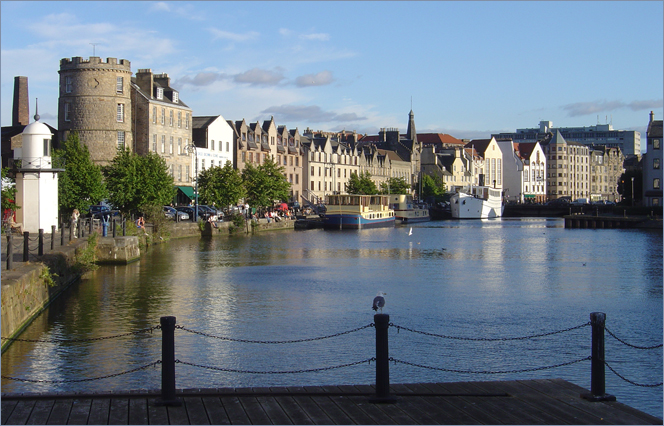Project Description
Background
The prescription of a medicine is the most common intervention in healthcare. However, pharmaceutical residues can enter the water environment where they pose a risk to aquatic organisms through chronic exposure (Kümmerer, 2010) and, in the case of antimicrobials, lead to increased antimicrobial resistance (Bengtsson-Palme et al., 2014), one of the most serious health concerns of our time. Medicines also account for 18% of NHS Scotland’s carbon footprint (NHS Scotland, 2009).
There is an urgent need to reduce the reliance on pharmaceutical prescriptions, and a clear demand for alternative interventions. ‘Green prescribing’ in this context refers to a prescriber’s recommendation of engagement with the natural environment, which can have multiple benefits (Frumkin et al., 2017). From an environmental science perspective, ’green prescribing’ refers instead to the use of environmental criteria in pharmacological decision making. If several medicines of equal therapeutic benefit are available, the one with the least environmental impact is prescribed. In Sweden, this has been implemented successfully through the WISE list, a green formulary (prescribing guideline).
The project links to two initiatives, each relating to one of these interpretations of green prescribing. Firstly, the Green Breakthrough Partnership (GBP) seeks to develop a green formulary for Scotland, modelled on the Swedish WISE list system, a first of its kind in the UK. Secondly, the ‘Our Natural Health Service’ initiative in Scotland seeks to include the use of nature-based health promotion initiatives and structured interventions into routine health and social care practice and reduce the pressure on NHS Scotland. The PhD has close links to the GBP through its supervisory team; Dr. Karin Helwig and Dr. Rachel Helliwell, as well as external advisor Sharon Pfleger. Dr. Kate Irvine has extensive expertise in nature-based health interventions and links to the Our Natural Health Service initiative with which the successful applicant would seek to connect.
The PhD Project
The project closes the loop between human and environmental health by testing the hypothesis that blue-green prescribing strategies offer an acceptable way to deliver positive health outcomes as part of a strategy to reduce our reliance on pharmaceuticals and thus their negative impact on the water environment.
This PhD introduces a new concept, ‘blue-green prescribing’, to emphasize both the specific health benefits that water environments (e.g. rivers, coastline) can offer (see e.g. Van Tulleken, 2018) and the fact that the water environment is most significantly impacted by pharmaceuticals. The project would combine the use of medicine-free interventions and the use of environmental criteria into a proposal for blue-green prescribing guidelines for Scotland to deliver an integrated approach that benefits in tandem human and environmental health.
Changes to prescribing policies will only happen if they are supported by NHS Scotland as an institution and can only be successful if they are supported by prescribers, patients and their representatives, and pharmacists, who may play a crucial role in developing a ‘blue-green formulary’. This project will therefore investigate the acceptability, in these key groups, of a prescribing policy that would lead to reduced reliance on medicines, reduced spending on medicines, avoided cost of advanced wastewater treatment, reduced adverse impacts from medicines on the environment, and potentially better overall patient outcomes.
Supervision and training
The project will be supervised by Dr. Karin Helwig (Glasgow Caledonian University (GCU)), Dr. Kate Irvine (James Hutton Institute (JHI)) and Dr. Rachel Helliwell (JHI). In addition, the proposal is supported by Sharon Pfleger, NHS Highland; Dr. Lesley Price, Senior Lecturer in the Department of Nursing and Community Health at GCU, and Dr. Judith Singleton, Lecturer Pharmacy at Queensland University of Technology (QUT), Australia. This support will be invaluable in gaining insights into prescribing practices and in making contacts with patients, prescribers, pharmacists and the wider stakeholder group. The student will be hosted at GCU but may spend some time at JHI. Specific training for the PhD will include: (i) social science methods, including qualitative case study and quantitative survey methods and analysis; (ii); experimental design and data analysis; and (iii) pharmaceutical risk assessment. The student would be encouraged to discuss research plans and outcomes with other Hydronation Scholars and relevant projects within the Hydronation Programme.
Funding Notes
The Hydro Nation Scholars Programme is an open competition for PhD Scholars to undertake approved projects, hosted within Scottish Universities and Research Institutes. Full funding is available from the Scottish Government (to host institutions via the Scottish Funding Council). The funding available will be in line with the UKRI doctoral stipend levels and indicative fees. Applicants should have a first-class honours degree in a relevant subject or a 2.1 honours degree plus Masters (or equivalent). Shortlisted A suitable background could be one or more of the following: pharmacy, public health, medicine, environmental science, sustainable development and social or behavioural sciences.
References
Bengtsson-Palme J, Boulund F, Fick J, Kristiansson E, Larsson DG (2014) Shotgun metagenomics reveals a wide array of antibiotic resistance genes and mobile elements in a polluted lake in India. Front Microbiol. 5:648.
Frumkin H, Bratman BN, Breslow SJ, Cochran B, Kahn Jr PH, Lawler JJ, Levin PS, Tandon PS, Varanasi U, Wolf KL, and Wood SA (2017) Nature Contact and Human Health: A Research Agenda. Environmental Health Perspectives 125(7): 075001.
Kümmerer K (2010) Pharmaceuticals in the Environment. Annual Review of Environment and Resources 35:1, 57-75
NHS Scotland (2009) Carbon Footprint of NHSScotland (1990-2004). Online. Available from: http://www.hfs.scot.nhs.uk/news/?item=54
Van Tulleken (2018) Open Water swimming as a treatment for major depressive disorder. BMJ Case Reports. bcr-2018-225007

